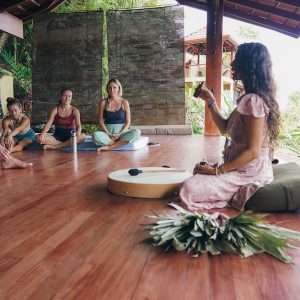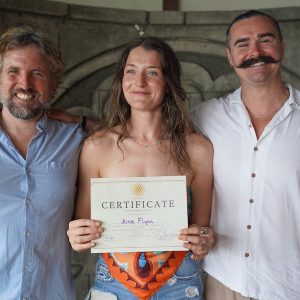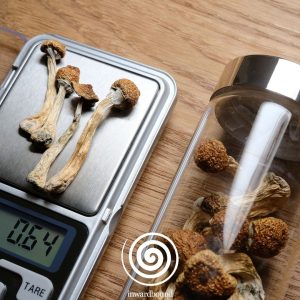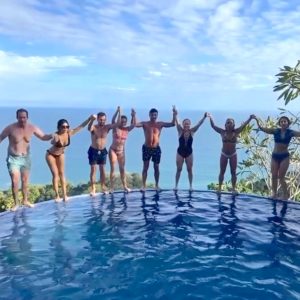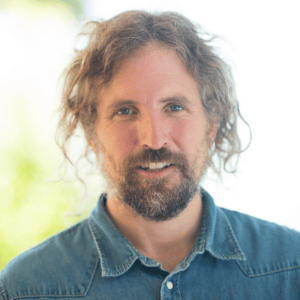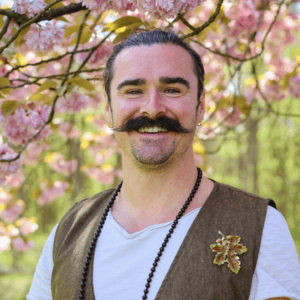What You Will Learn:
- Multi-Modal Therapeutic Approaches – Integrate techniques from somatic therapy, depth psychology, Internal Family Systems (IFS), transpersonal and humanistic psychology, holotropic breathwork and and mindfulness-based practices.
- Space Holding/ Facilitation Skills – Develop grounding techniques, energetic boundaries, and trauma-informed care strategies.
- Psychedelic Science & Ethics – Understand the neuroscience, cultural history, and ethical considerations of facilitation.
- Navigating Difficult Journeys – Learn de-escalation techniques, emotional processing tools, and harm reduction strategies.
- Integration & Aftercare – Support clients in translating their insights into lasting change through creative, somatic, and cognitive approaches.
- Hands-On Practice – Engage in guided role-playing, meditation, breathwork, and experiential exercises to embody your facilitation skills
Sample Training Schedule (subject to change):
Day 1: Arrival & Opening Circle
18:00 – Arrival & Dinner
Participants arrive, check-in, and settle into the space. Enjoy a light, mindful dinner to ground and connect.
20:00 – Opening Circle
Welcome & group introductions. Setting intentions for the journey ahead. Breathwork & grounding meditation. Journaling & personal reflection.
21:30 – Rest & Integration
Free time to relax, journal, or connect quietly
Day 2: Holding Space & Trauma-Informed Facilitation
Morning: The Art of Holding Space. Presence, attunement & deep listening. Creating safe and sacred space. Energetic boundaries & self-care for facilitators.
Afternoon: Trauma-Informed Approaches. Understanding trauma & nervous system regulation. Somatic & mindfulness-based techniques. Supporting challenging experiences.
Evening: Sound & Movement Therapy. Expressive movement & sound journey. Reflection & group sharing.
Day 3: Therapeutic Modalities & Navigating Difficult Journeys/ Managing Fear
Morning: Integrating Therapeutic Approaches. Internal Family Systems (IFS) & parts work. Jungian & transpersonal psychology insights. Somatic therapy & breathwork integration.
Afternoon: Navigating Challenging Experiences. Crisis intervention & de-escalation techniques. Non-verbal communication & co-regulation. Role-playing difficult scenarios.
Evening: Guided Meditation & Sound Healing
Day 4: The Journey Experience & Expanded States of Consciousness
Morning: Altered States Exploration. Preparation protocols for journeying. Music, ritual, and ceremony in psychedelic sessions. Legal & ethical considerations in facilitation.
Afternoon: Deep Experiential Practice (Ceremony 1).
Evening: Creative Expression & Art Therapy. Drawing, writing, or movement as integration. Group reflection & sharing.
Day 5: Integration & Aftercare Strategies
Morning: The Importance of Integration. The role of integration in healing. Cognitive, somatic & creative approaches. Supporting long-term change. Case Studies & Real-World Applications. Reviewing real-world psychedelic journeys. Personalized integration plans. Facilitator self-care & avoiding burnout.
Afternoon: Ceremony 2
Evening: Silent Reflection & Nature Immersion
Day 6: Practice, Role-Playing & Supervision
Morning: Facilitator Role-Playing. Hands-on facilitation practice in small groups. Giving & receiving feedback. Developing personal facilitation style.
Afternoon: Supervision & Ethical Dilemmas. Group discussion on ethical gray areas. Boundaries, consent & legal considerations. Q&A with experienced facilitators
Evening: Community Fire Circle & Ceremony
Day 7: Closing Circle
08:00 – Light Breakfast & Reflection.
Gentle morning practice (breathwork or meditation).
Time for personal journaling & integration
09:00 – Closing Circle. Sharing insights & gratitude. Breathwork & final grounding. Setting personal intentions moving forward.


